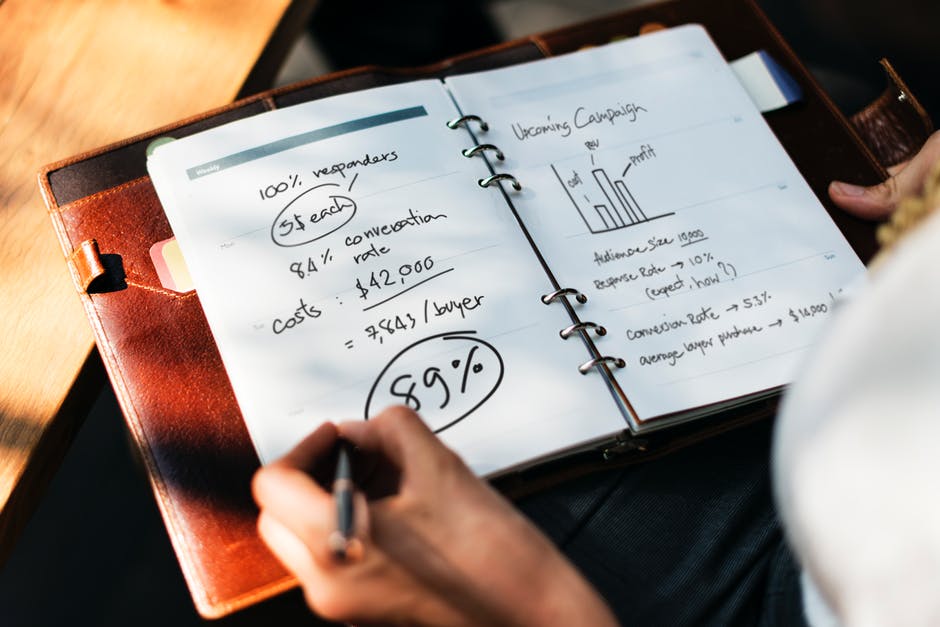The researchers believe that in the next five years, companies will undergo much more changes than in the previous 15 years. At that, the new consumption will determine their future.
The development of technologies and digital media taught people to obtain necessary information and knowledge literally at the moment when this information or knowledge is necessary for them. This experience and habits of consumers have also spread to other spheres. High technologies that provide accessibility and transparency, the authors of the study say, will be an indispensable part of business models.
Consumers will give preference to those services, companies and brands that make their life easier to handle. The selection process will be guided by opinions and recommendations of other people - users various services (hotel ratings from TripAdvisor, ratings of drivers in Uber or Gett and so on), or reviews in social networks.
The social networks themselves, among other things, will also be trading floors. Last year, for example, Instagram introduced a feature that allows you to buy goods right through the application.
This will not only give an additional boost to social commerce, but will also force traditional companies to add more online practices to their "physical" stores and offices, just like Topshop stores introduced technologies of augmented reality (virtual fitting room).
The development of advertising using new technologies will be the second trend that determines the future of companies. To start, advertising will become more personalized. Big Data will allow making advertising more targeted, and bots and technology of machine learning will offer an opportunity to move from monologue to dialogue with the consumer.
For example, at the end of last year, the Mindshare advertising agency presented a unique outdoor advertisement for the new Jaguar F-PACE using programmatic DOOH technology (programmable digital advertising media for public places). As part of this campaign, an image on digital billboard was adjusted to the audience in real time. The technology recognized cars coming near the billboard and, discovering potential competitors of Jaguar F-PACE, launched an advertising video. At the same time, weather conditions and time of day were taken into account, too.
Finally, the availability of platforms will allow development of content that will go beyond simple advertising. So, Nike company has already done so, having created a running club which unites clients into communities and allows to support loyalty to a brand.
Another trend - the "mobility revolution" - will change the habitual approach to travel and force people to choose new modes of transport. Landor’s researchers confirm: the development of technology makes owning your own car less profitable compared to car-sharing or subscription services. Uber and Blablacar are just the beginning. The car-sharing experience will be transferred to other types of transport, first of all - business aviation.
The relationship between car manufacturers and buyers will change, too. The former will have to come up with ways to attract and, most importantly, retain customers, as car purchases will become less frequent. Building long-term cooperation with the client will be more important for the manufacturer than a one-time deal. However, the car-sharing booming is only one of the components of the "mobility revolution". The second is the growing popularity of electric vehicles, which will radically change such sectors as energy, automotive and infrastructure construction.
Finally, the third component is development of unmanned automobile technologies. Experts believe that the unmanned vehicles will become something on duty three years from now.
Landor experts turn to producers and sellers of goods and services with a bold statement: "Forget everything that you knew about the production and design of goods." The development of 3D printing, in their opinion, is another key trend. It will enable the consumer to control the characteristics of a particular product. Hyper-personalization, of course, is especially dangerous for companies that until now have been considered their advantage just the opposite - standardization and constancy.
In turn, "smart packaging" will lead to "smart consumption". It will monitor freshness of products, their quantity, will allow replenishing stocks in one click. Finally, robot automation and artificial intelligence will reduce the cost of goods so much that companies will have to come up with new ways to create added value.
Another breakthrough trend will be blockchain. Its application is particularly important for building trust in brands or organizations. In particular, this technology will allow manufacturers to track counterfeit products, and consumers will be able to verify authenticity of goods.
source: landor.com
The development of technologies and digital media taught people to obtain necessary information and knowledge literally at the moment when this information or knowledge is necessary for them. This experience and habits of consumers have also spread to other spheres. High technologies that provide accessibility and transparency, the authors of the study say, will be an indispensable part of business models.
Consumers will give preference to those services, companies and brands that make their life easier to handle. The selection process will be guided by opinions and recommendations of other people - users various services (hotel ratings from TripAdvisor, ratings of drivers in Uber or Gett and so on), or reviews in social networks.
The social networks themselves, among other things, will also be trading floors. Last year, for example, Instagram introduced a feature that allows you to buy goods right through the application.
This will not only give an additional boost to social commerce, but will also force traditional companies to add more online practices to their "physical" stores and offices, just like Topshop stores introduced technologies of augmented reality (virtual fitting room).
The development of advertising using new technologies will be the second trend that determines the future of companies. To start, advertising will become more personalized. Big Data will allow making advertising more targeted, and bots and technology of machine learning will offer an opportunity to move from monologue to dialogue with the consumer.
For example, at the end of last year, the Mindshare advertising agency presented a unique outdoor advertisement for the new Jaguar F-PACE using programmatic DOOH technology (programmable digital advertising media for public places). As part of this campaign, an image on digital billboard was adjusted to the audience in real time. The technology recognized cars coming near the billboard and, discovering potential competitors of Jaguar F-PACE, launched an advertising video. At the same time, weather conditions and time of day were taken into account, too.
Finally, the availability of platforms will allow development of content that will go beyond simple advertising. So, Nike company has already done so, having created a running club which unites clients into communities and allows to support loyalty to a brand.
Another trend - the "mobility revolution" - will change the habitual approach to travel and force people to choose new modes of transport. Landor’s researchers confirm: the development of technology makes owning your own car less profitable compared to car-sharing or subscription services. Uber and Blablacar are just the beginning. The car-sharing experience will be transferred to other types of transport, first of all - business aviation.
The relationship between car manufacturers and buyers will change, too. The former will have to come up with ways to attract and, most importantly, retain customers, as car purchases will become less frequent. Building long-term cooperation with the client will be more important for the manufacturer than a one-time deal. However, the car-sharing booming is only one of the components of the "mobility revolution". The second is the growing popularity of electric vehicles, which will radically change such sectors as energy, automotive and infrastructure construction.
Finally, the third component is development of unmanned automobile technologies. Experts believe that the unmanned vehicles will become something on duty three years from now.
Landor experts turn to producers and sellers of goods and services with a bold statement: "Forget everything that you knew about the production and design of goods." The development of 3D printing, in their opinion, is another key trend. It will enable the consumer to control the characteristics of a particular product. Hyper-personalization, of course, is especially dangerous for companies that until now have been considered their advantage just the opposite - standardization and constancy.
In turn, "smart packaging" will lead to "smart consumption". It will monitor freshness of products, their quantity, will allow replenishing stocks in one click. Finally, robot automation and artificial intelligence will reduce the cost of goods so much that companies will have to come up with new ways to create added value.
Another breakthrough trend will be blockchain. Its application is particularly important for building trust in brands or organizations. In particular, this technology will allow manufacturers to track counterfeit products, and consumers will be able to verify authenticity of goods.
source: landor.com



















